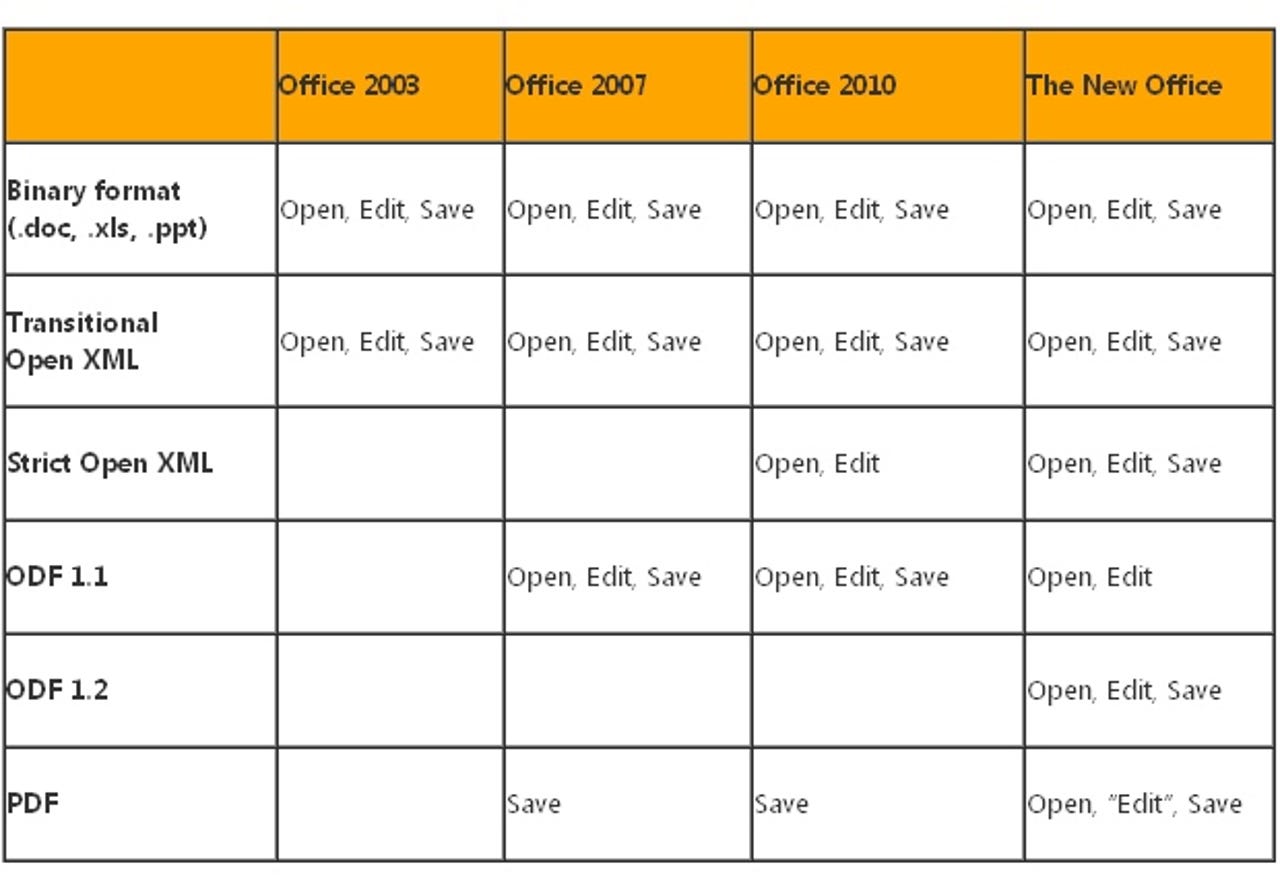Microsoft Office gets support for new ODF and Open XML file formats

The next version of Office will fully support two new file formats, Strict Open XML and Open Document Format 1.2, Microsoft has announced.
In a blog post on Monday, Office standards chief Jim Thatcher said the addition of the new formats would give users more choice. He also reiterated that Word 2013 users would be able to open and edit PDF documents — a feature apparently known as "PDF Reflow".

"With these enhancements, Microsoft Office now provides full read and write support for the most commonly used document format standards," Thatcher wrote. "So no matter which of these formats your documents are in today, you will be able to work with them in the next release of Office."
The history of Microsoft's Open XML standard and its rival Open Document Format (ODF) is long and painful, as many in the open source community saw Office Open XML (OOXML, as it was called at the time) as an attempt by Microsoft to stave off the properly open ODF with its own pseudo-open format.
The situation came to a head in 2008, when OOXML won formal approval, albeit through a process that some claimed had been rigged. The debate was so heated that International Organization for Standardization (ISO) sessions covering the process drew physical protests outside the building.
The early version of the standardised Open XML was formally known as 'Transitional Open XML', as it relied on Microsoft-specific data types. Its successor, Strict Open XML, does not rely on such data types — it was supported in Office 2010 to the extent that users could open and edit documents in the format, but they could not save them in that format.
In the upcoming version of Office, users can save to Strict Open XML. They can also open, edit and save documents in the ODF 1.2 format, which was standardised last September and which adds features in fields such as accessibility and digital signature support. Excel 2013 will also for the first time be able to benefit from the OpenFormula spreadsheet standard that is supported in ODF 1.2.
However, users of the upcoming version of Office will no longer be able to save to the older ODF 1.1 format.
As regards Word's newfound PDF-editing capabilities, Thatcher was keen to stress that "the goal is not to make Word into a PDF reader or PDF editor". This echoed what Word program manager Tristan Davis said at the end of July, namely that Microsoft was not going for "full-fidelity" PDF functionality.
"The goal is to help you to bring the contents of PDF files back into an editable format using Word 2013," Thatcher said.